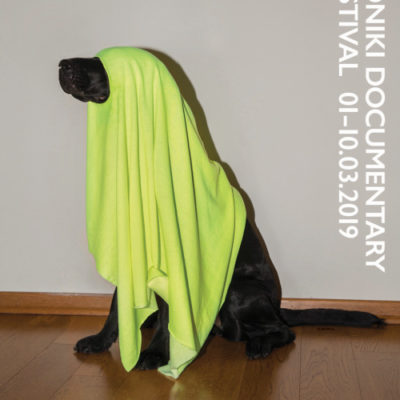Direction: Vilma Meniki
The documentary is about the Greek feminist wave Autonomous Group of Women, originated in 1985 in Thessaloniki. The group was active for 10 years and during this period, among other initiatives, produced the magazine Katina, to which a big part of the documentary is dedicated.
 Katina is a female name. In addition, since the late 1960s, the word has been used to describe a gossip woman that is not educated. So, the decision of the group to name its magazine Katina targeted not the female name but the adjective. The aim was to challenge that characterization. Through the power of language, using that name as a title and the subtitle “Feminist Magazine” the goal was to dismantle the negative aspect of the word Katina. The demystification of sexist attributions to women by men was only one of the innovative goals that the Autonomous Group of Women set in the 1980s Greece. Having members that spent time in U.S. the group managed to stay updated on the latest developments on feminism. For instance, through its magazine, it also introduced in Greece the debate over gender issues in science.
Katina is a female name. In addition, since the late 1960s, the word has been used to describe a gossip woman that is not educated. So, the decision of the group to name its magazine Katina targeted not the female name but the adjective. The aim was to challenge that characterization. Through the power of language, using that name as a title and the subtitle “Feminist Magazine” the goal was to dismantle the negative aspect of the word Katina. The demystification of sexist attributions to women by men was only one of the innovative goals that the Autonomous Group of Women set in the 1980s Greece. Having members that spent time in U.S. the group managed to stay updated on the latest developments on feminism. For instance, through its magazine, it also introduced in Greece the debate over gender issues in science.
What made the Autonomous Group of Women a special case was the fact that it wasn’t yet another intellectual group. Rather it was a political movement that acted beyond the academic sphere. As the core members stressed in the documentary “while for American women the knowledge was already there (after the feminist movements in U.S.), we had to fight for that knowledge”. So, they took to the streets, they shared their magazine in public spaces, they produced a radio show and they organized several cultural events. In 1987, the first pan-Hellenic feminist festival was held by the Autonomous Group of Women. Anja Meulenbelt, the author of the book De Schaamte Voorbij (The Shame is Over) was present at the festival as a special guest.
Through its actions, the Autonomous Group of Women supported in practice the motto of the second wave of feminism, “the personal is political” as well as the feminist efforts to challenge and change the rigid and for many intellectuals arbitrary differentiation between public and private. One of the main reasons the Autonomous Group of Women was founded was the legalization of abortion in Greece. Moreover, the group not only tried to forward the interests of women in the political public sphere but initiated social policies. In response to state absence, in 1991, the Autonomous Group of Women created a help phone line to support abused women. Thus, the group constituted a clear example of what the American critical theorist Nancy Fraser called “counterpublic”.
16 years after the dissolution of the Autonomous Group of Women, the core members met again to give interviews for the documentary. While they were having lively discussions and even disagreements about current politics they were surprised to notice that they were doing so with the same agonistic spirit as back then. They seemed to totally agree about one fact: While the group had a huge impact on their lives, it didn’t manage to reach a wider public. There are still a lot of things to be done for gender equality in Greece.
Aris Myriskos




